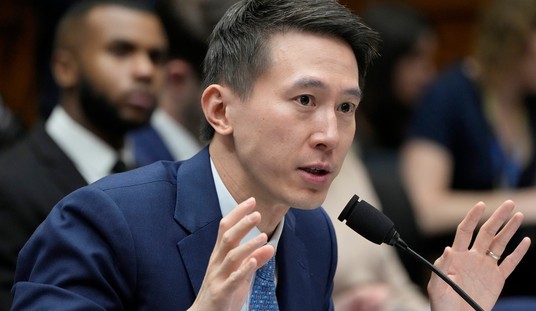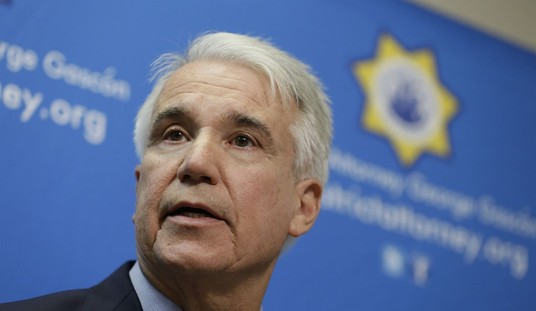During the 2012 election, and to a lesser extent in the 2010 cycle, it became popular for poll-watchers on the right to dig into the sample data of individual polls, compare that sample available exit polling, and apply some judgment as to whether or not that poll was likely to accurately reflect the results on Election Day.
In 2012, however, too many on the right began reflexively engaging in this practice for every poll with the aim of divining preferred results out of an otherwise disappointing poll. A few thoughtless types on the left would shriek, and not without some merit, ‘Unskewed!’ at the amateur polling analyst. It was an insult meant to convey that the individual performing this data dissection was only desperately trying to avoid accepting undesirable realities. The practice largely fell out of favor.
Now, for those who are experienced polling analysts with a relatively extensive understanding of the industry, the weighting practices and house effects of various firms, and the dynamics of the state and/or election cycle in question, there is nothing wrong with sample dissection. It can actually be a rather powerful tool for understanding how seriously to regard an individual survey’s results. But it may have fallen victim to its own successes.
Just as Jacob Raskob believed that everyone could, and should, be rich, and advocated a system whereby the aspiring well-to-do could purchase stocks on margin, the ill-equipped began to give polling analysis a bad name in 2012. “You know it’s time to sell when shoeshine boys give you stock tips,” Joe Kennedy famously quipped in what many would come to see as an anecdote heralding the end of the good times. In the same way, those capable of performing a capable dissection and analysis of a poll got out of the business after 2012. The market was already flooded with the shoddy stuff.
Flash-forward a few years, and the practice is again back in vogue, but it is not the right which has embraced it. The left, facing a deluge of terrible polling data from Senate, House and gubernatorial races across the country, have begun to unskew for themselves:
Florida Polls Are Missing the Latino Vote and Thus the True Statewide Spread Between Crist and Scott http://t.co/9PHf8eDq9E
— Alan Abramowitz (@AlanIAbramowitz) October 13, 2014
Can I get someone at SUSA to take a bet on Gardner winning the Latino vote in CO as their poll claims? I'd gladly give them 10-1 odds.
— Alan Abramowitz (@AlanIAbramowitz) October 13, 2014
@sunnyright @NumbersMuncher wait, so you are certain that no RVs who have been identified as LVs will vote this fall? That's interesting.
— Greg Sargent (@ThePlumLineGS) October 15, 2014
The Hill’s Niall Stanage observed that even some Democratic Party elders allege that a conspiracy of skewing is afoot.
More generally, Democratic strategist Brent Budowsky, a columnist for The Hill, recently wrote, “There are so many razor-thin Senate races that confident predictions of which party holds Senate control are, to paraphrase a line from Jack Nicholson in ‘Chinatown’, wind from a duck’s derriere.”
“Polling has become politicized like everything else in the current environment,” said Tobe Berkovitz, a Boston University professor who specializes in political communication. “The press has become more politicized, the reporting itself has become more politicized, and so, it is to be expected that polling is politicized.”
Even President Clinton has suggested that the pollsters are getting it wrong, both in terms of the likely results and the assumptions that their projections are based upon.
Once again, there is nothing wrong with asking these questions or making these observations. It was the left, however, that sought to embarrass those conservatives who engaged in this practice, and they are not going to get much sympathy from the right if they are mocked for doing the exact same thing today.
But not everyone is laughing. Responding to the revived unskewing phenomenon, Nate Silver took a look at the polls and wondered whether Democrats had a point. He decided, somewhat surprisingly, that they may. However, he observed, it is just as likely that Republicans are being underserved by this cycle’s surveys, too.
“Usually this doesn’t end well for the unskewers,” Silver noted. He observed that Democrats thought the polls were biased against John Kerry in 2004, but they were mistaken. In 2012, the national surveys did reflect a bias – one in favor of Mitt Romney.
Silver added that a skewed image of the electorate can easily emerge, and Democrats may be on the wrong side of that skew. He added, though, that the GOP may just as easily be disadvantaged by a bias in the polls.
Moreover, Silver writes, if there is a systemic bias in this cycle’s polling, it would be unlikely to seriously affect the outcome of the race for control of the U.S. Senate.
What if the polls prove to have no bias? Our model shows Republicans as about 75 percent likely to win a Senate majority. This may seem confusing: Doesn’t the official version of FiveThirtyEight’s model have Republicans as about 60 percent favorites instead? Yes, but some of the 40 percent chance it gives Democrats reflects the possibility that the polls will have a Republican bias. If the polls were guaranteed to be unbiased, that would make Republicans more certain of winning. (An additional portion of the Democrats’ 40 percent chance reflects the possibility that the polls will drift toward Democrats between now and Election Day.)
Put another way, the FiveThirtyEight model already accounts for the possibility that the polls could be biased against Democrats. It also accounts for the prospect that they could be biased toward them. In that case, Republicans could win New Hampshire or North Carolina, where they currently trail in the polls. In about 16 percent of our simulations, Republicans wound up with 54 or more Senate seats. That would probably qualify as a “wave” election.
It’s reasonable — indeed healthy — to be skeptical about the polls. Many of the states on the ballot this year present unique polling challenges. Many have a large number of undecided voters. And the quality of the polling is mixed. Historically, the error in polls is considerably larger than their margins of error alone imply.
Those on the left who ruthlessly mocked aspiring polling analysts in 2012, while engaging in no data parsing of their own and merely credulously accepting results favorable to their preferred candidates, have no one to blame today but themselves if no one is listening when they insist the polls in this cycle are off. But they may also be refusing to learn the lessons Republicans absorbed in 2012, and that will only make election night that much more painful for them.








Join the conversation as a VIP Member